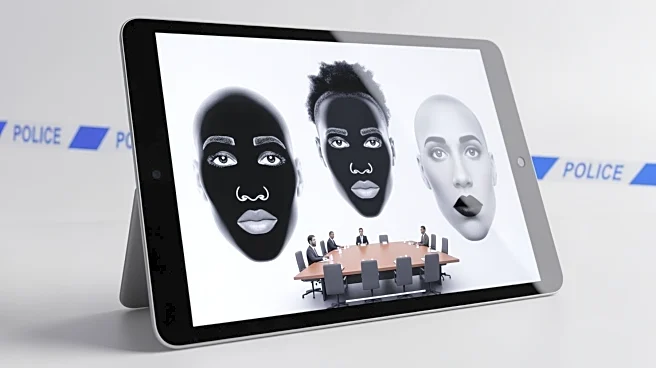What's Happening?
The emergence of Black AI influencers on social media platforms has sparked a debate about digital blackface and the exploitation of Black culture. These AI-generated avatars, which mimic the appearance
and mannerisms of Black individuals, are being used to create content that drives engagement and profit. Critics argue that this trend dehumanizes Black people and perpetuates racial stereotypes. The phenomenon is part of a broader pattern of misinformation and cultural appropriation facilitated by generative AI technologies, which can produce hyper-realistic avatars and videos with minimal input.
Why It's Important?
The rise of AI-generated Black influencers raises significant ethical and cultural questions about representation and authenticity in digital media. By creating avatars that mimic Black individuals, these technologies risk reinforcing harmful stereotypes and reducing complex identities to simplistic caricatures. This trend also highlights the ongoing issue of cultural appropriation, where elements of Black culture are commodified and exploited for profit without proper acknowledgment or compensation. The use of AI in this context underscores the need for greater scrutiny and regulation of generative technologies to prevent misuse and ensure respectful representation.
Beyond the Headlines
The proliferation of AI-generated influencers reflects broader societal challenges related to race, identity, and technology. As AI continues to evolve, it is crucial to consider the implications of these technologies on marginalized communities and to develop frameworks that promote ethical use. This includes fostering diversity in AI development teams and ensuring that cultural sensitivity is prioritized in the creation of digital content. The conversation around digital blackface also serves as a reminder of the importance of amplifying authentic voices and stories from underrepresented groups in media and technology.










